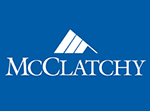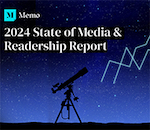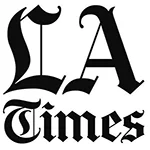 |
Twitter has released the details of the political ad ban that was announced by CEO Jack Dorsey on Oct. 30. The ban will apply to campaigns, government officials, political action committees and 501(c)(4) groups (what the IRS refers to as “social welfare organizations”). It prohibits content that makes reference to “a candidate, political party, elected or appointed official, election, referendum, ballot measure, legislation, regulation, directive or judicial outcome,” according to a post on twitter.com. What’s not prohibited: issue-based ads that address such topics as “economic stewardship” or “economic growth”—as long the ad is placed by someone, not in one of the prohibited categories. For-profit companies will be allowed to run issue ads as long as those ads do not call for specific political outcomes. News publishers can be exempted from the ban if they meet a set of criteria that includes having a minimum of 200,000 unique monthly visitors and not being dedicated to advocating on a single issue.
 |
Sports Illustrated is going monthly, the second time the publication has cut its print frequency in the past two years. SI went from publishing weekly to publishing every other week in January 2018. “We’re refining the exact schedule,” co-editor Steve Cannella told the New York Post, “but it will be essentially a monthly with four season-preview issues and the SI Swimsuit for a total of 17 issues.” The publication will continue to put out issues of SI Kids and SI Presents, as well as print editions tied to such events as the Super Bowl and World Series. Cannella said there will be no staff cutbacks as part of the change. Meredith sold SI to Authentic Brands Group in May for $110 million. ABG subsequently handed over SI’s media operations to Seattle-based tech and digital publisher Maven.
 |
McClatchy, which owns such newspapers as the Miami Herald, Fort Worth Star-Telegram and Charlotte Observer, is going to stop printing Saturday editions of all its papers by the end of 2020. Editorial content will still be produced for Saturday, but it will only run online. The policy has already taken place at four of the chain’s newspapers. McClatchy reported a net loss of $304.7 million for the third quarter. It is also in talks with the Pension Benefit Guaranty Corporation, the U.S. government’s pension insurer, with the goal of having the PBGC assume control of its pension fund assets and its obligations. As of March, the fund was underfunded by $535 million, according to the Wall Street Journal. The company says that the $124 million contribution it is required to make to its pension fund next year would create “a significant liquidity challenge.”


 Trump Media & Technology Group today reported a $58.2M net loss on $4.1M in 2023 revenues, a disclosure that drove its stock price down 22.6 percent to $47.96.
Trump Media & Technology Group today reported a $58.2M net loss on $4.1M in 2023 revenues, a disclosure that drove its stock price down 22.6 percent to $47.96. Barry Pollack, an attorney at Wall Street’s Harris St. Laurent & Wechsler, has registered Julian Assange as a client with the Justice Dept. “out of an abundance of caution.”
Barry Pollack, an attorney at Wall Street’s Harris St. Laurent & Wechsler, has registered Julian Assange as a client with the Justice Dept. “out of an abundance of caution.” Paramount Global to slash 800 jobs in what chief executive Bob Bakish calls part of an effort to “return the company to earnings growth"... Rolling Stone editor-in-chief Noah Shachtman is exiting at the end of the month due to disagreements with chief executive Gus Wenner over the direction the magazine is taking... The New York Times broke the $1 billion barrier in annual revenue from digital subscriptions in 2023... Press Forward is investing more than $500 million to strengthen local newsrooms.
Paramount Global to slash 800 jobs in what chief executive Bob Bakish calls part of an effort to “return the company to earnings growth"... Rolling Stone editor-in-chief Noah Shachtman is exiting at the end of the month due to disagreements with chief executive Gus Wenner over the direction the magazine is taking... The New York Times broke the $1 billion barrier in annual revenue from digital subscriptions in 2023... Press Forward is investing more than $500 million to strengthen local newsrooms. The majority of news articles are read within the first three days of publication, according to a recent report.
The majority of news articles are read within the first three days of publication, according to a recent report. The Los Angeles Times gives pink slips to 115 people or 20 percent of its newsroom staff... TIME is also laying off about 30 employees, which is approximately 15 percent of its editorial staff... The Baltimore Banner, which was launched by Stewart Bainum in 2022 after he failed to buy the Baltimore Sun, added 500 subscribers per day in the three days following Sinclair Broadcast Group's deal to purchase the Sun.
The Los Angeles Times gives pink slips to 115 people or 20 percent of its newsroom staff... TIME is also laying off about 30 employees, which is approximately 15 percent of its editorial staff... The Baltimore Banner, which was launched by Stewart Bainum in 2022 after he failed to buy the Baltimore Sun, added 500 subscribers per day in the three days following Sinclair Broadcast Group's deal to purchase the Sun.


 Have a comment? Send it to
Have a comment? Send it to 
No comments have been submitted for this story yet.